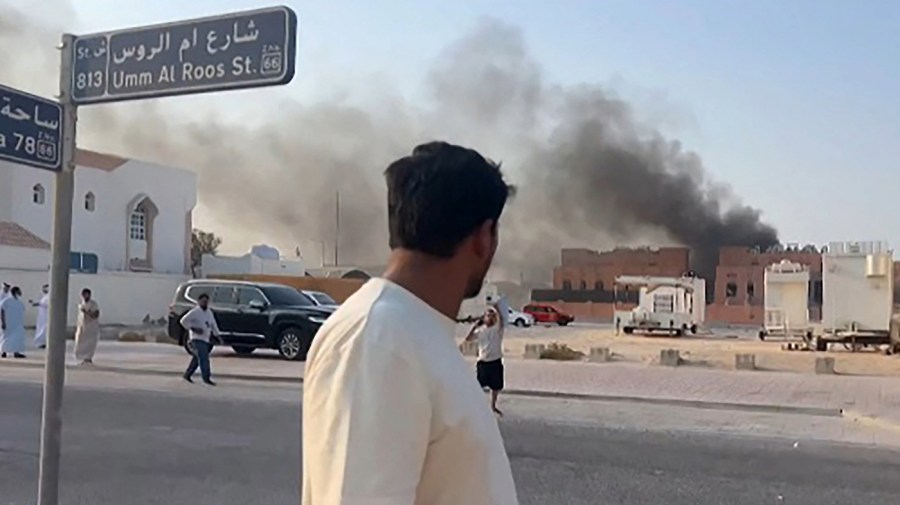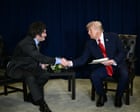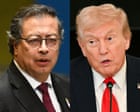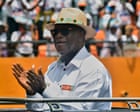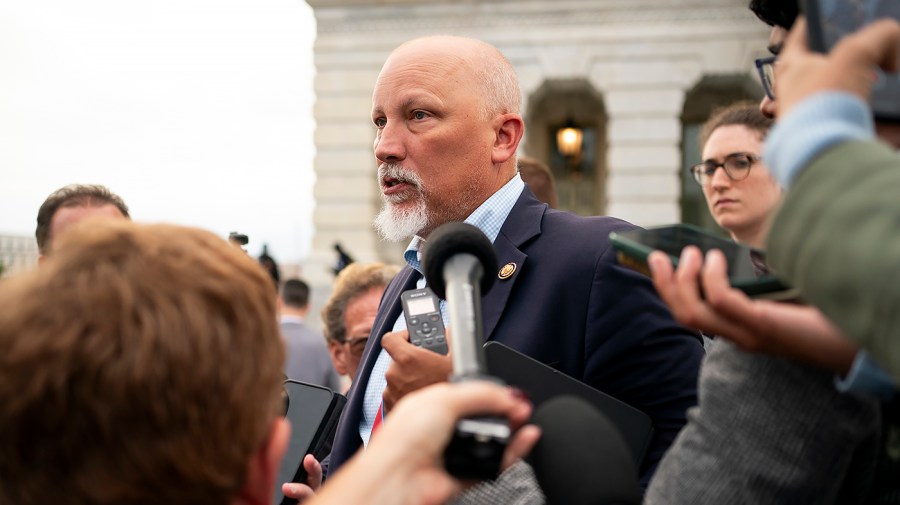To grasp the importance of Israel’s unprecedented September attack on Hamas negotiators in Doha, just look at President Trump’s decision to sign an executive order guaranteeing Qatar’s security — a startling step for a non-NATO ally.
The day before, Trump had pressured Israeli Prime Minister Benjamin Netanyahu into giving a rare apology, telling his Qatari counterpart on an Oval Office call that he promised not to conduct more such attacks as Trump looked on.
For Arab Gulf states, Israel’s attack on Qatar was a threshold-crossing moment. Many Gulf officials and citizens saw Israel’s strike in downtown Doha as an immediate threat to the region’s security — and their own. Washington raced to reassure its Arab partners, but Israel’s strike risked long-term damage.
Trump’s inability or unwillingness to stop Israel’s attack added to many Gulf leaders’ longstanding concerns over the reliability of the U.S. security umbrella. Gulf states are now reevaluating their defense and security alliance, not to replace the U.S., but to fill gaps and update cooperative mechanisms.
Israel’s attack also sparked striking rhetorical solidarity among the six-member Gulf Cooperation Council — led by its heavyweights, Saudi Arabia, the United Arab Emirates and Qatar — and accelerated a dramatic shift in Gulf states’ perception of the Jewish state.
Only five years ago, the United Arab Emirates and Bahrain normalized relations with Israel, and two years ago Saudi Arabia was talking with the U.S. about following suit. But Hamas’s assault on Israel on Oct. 7 and the war in Gaza slowed progress toward further normalization. The enormous human toll in Gaza has badly strained Gulf relations with Israel.
Gulf concerns over Israeli actions have risen just as threats from Iran have diminished. Israeli military action against Iran, Hezbollah, Hamas and other parts of Tehran’s regional network over the past two years in many ways benefited Gulf states worried about Iran. Tehran’s vaunted “axis of resistance” is in shambles, and its nuclear program was significantly set back by Israeli and American bombs.
Still, Iran remains a core security concern for the Gulf states. Only months before the Doha attack, Iran was the one violating Qatari sovereignty, launching a choreographed strike on America’s al-Udeid military base in retaliation for U.S. and Israeli attacks on Tehran’s nuclear facilities.
But while Gulf leaders think that Iran’s overall threat has diminished, they worry that Israel will become an increasingly destabilizing power. Netanyahu and his far-right government’s talk of a Greater Israel has amplified concerns. Then the Qatar attack confirmed Gulf leaders’ worst fears, showing Israel as a direct threat to the Gulf states’ security and ambitions for economic transformation.
Gulf leaders increasingly fear that if Israel was willing to strike in Doha, it might be willing to strike elsewhere — something antithetical to the Gulf’s vision of itself as an island of safety and stability. Anwar Gargash, an Emirati advisor, called the Israeli attack “treacherous” and pointedly noted that “the security of the Arab Gulf states is indivisible.”
The impact on the region’s security architecture remains uncertain. A gathering of Arab and Islamic leaders in Doha condemned Israel’s attack without offering binding follow-up steps. A Gulf Cooperation Council meeting framed the attack on Qatar as an attack on all members and called for a meeting of the Joint Defense Council, which agreed to increase intelligence exchanges, accelerate work on a ballistic-missile early warning system, and update joint defense plans.
More important than council solidarity is the emerging strategic alignment among Saudi Arabia, the United Arab Emirates and Qatar, informally known as the Gulf 3. Before Netanyahu’s attack on Doha, coordination among these powerful and ambitious states was on the rise. The United Arab Emirates and Saudi Arabia seem to have coordinated public statements calling Israeli annexation of the West Bank a red line. The Gulf 3 was also instrumental in fine-tuning Trump’s cease-fire plan for Gaza.
Now they are pushing to strengthen collective security, in cooperation with the U.S., against threats from both Iran and Israel. It’s too soon to know whether their efforts might lead to a long-discussed Gulf Arab version of NATO or just to a more diversified network of security arrangements that supplement cooperation with the United States.
The silver lining to the Doha strike may be the newfound Gulf 3 alignment. These countries’ competition has sometimes fueled conflicts rather than mitigating them.
Yet Saudi Arabia, the United Arab Emirates and Qatar’s wealth, diplomatic clout and good relations with the Trump administration uniquely position them to help forge progress on a variety of issues, from securing a day-after plan in Gaza to stabilizing Syria and moving toward a diplomatic solution with Iran on its nuclear ambitions and regional meddling. With the region in flux, this middle-power coordination toward a more peaceful future is sorely needed.
April Longley Alley is a senior fellow at the Washington Institute for Near East Policy. Abdulkhaleq Abdulla is a political science professor from the United Arab Emirates and a nonresident senior fellow at the Harvard Kennedy School.










